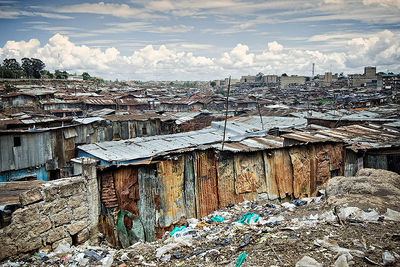imported>Chunbum Park |
imported>John Stephenson |
| (109 intermediate revisions by 5 users not shown) |
| Line 1: |
Line 1: |
| == '''[[Politics]]''' ==
| | {{:{{FeaturedArticleTitle}}}} |
| ----
| | <small> |
| | | ==Footnotes== |
| '''Politics''' is about living together in communities. Its subject-matter includes the consideration of such philosophical issues as the extent to which individual conduct should be made subordinate to the will of the community, and that of the proper rôle of the [[state]] as an expression of the will of the community. It also includes the consideration of such practical issues as the formulation and enforcement of rules governing the relations between the individual and the [[state]]. It encompasses the sociological influences upon the resolution of those issues in various communities, including the collective beliefs (or[[ideology| ideologies]]) that are held by their members. At the operational level, it includes prescriptive issues such as the conditions governing the legitimacy of [[government]]; the extent to which collective decision-making should be determined by [[ethics|ethical]] considerations rather than by its intended consequences; and the consideration that should be given to the welfare of foreign nationals. The descriptive content of politics includes the taxonomy of political systems, of institutional arrangements for the conduct of [[government]], and of the institutions governing the conduct of [[international relations]]. It also includes accounts of the observed conduct of politicians in seeking to gain the approval of the community, and in their policy-making and executive activities when in office.
| |
| | |
| ===Etymology=== | |
| The word politics comes from the Greek word Πολιτικά (politika), which was itself derived from πόλις (polis), "city". It was first used to mean the art of living in a city, but it subsequently acquired the broader interpretation of the art of being a citizen. That broader interpretation was implicit in the use of the word "cosmopolitan" to denote a citizen of the cosmos by the [[Cynics]] of the 4th century BCE. Later derivations included the terms "politic", "policy" and "police", and "polity" (a word used by some academics to refer to particular forms of governmental organisation). The term politics itself has also been used colloquially to describe (slightly discreditable) social conduct, as in "office politics" and, when extended to form a verb, in "politicking".
| |
| | |
| ''[[Politics|.... (read more)]]''
| |
| | |
| {| class="wikitable collapsible collapsed" style="width: 90%; float: center; margin: 0.5em 1em 0.8em 0px;"
| |
| |-
| |
| ! style="text-align: center;" | [[Politics#References|notes]]
| |
| |-
| |
| |
| |
| {{reflist|2}} | | {{reflist|2}} |
| |}
| | </small> |
Latest revision as of 09:19, 11 September 2020

The Mathare Valley slum near Nairobi, Kenya, in 2009.
Poverty is deprivation based on lack of material resources. The concept is value-based and political. Hence its definition, causes and remedies (and the possibility of remedies) are highly contentious.[1] The word poverty may also be used figuratively to indicate a lack, instead of material goods or money, of any kind of quality, as in a poverty of imagination.
Definitions
Primary and secondary poverty
The use of the terms primary and secondary poverty dates back to Seebohm Rowntree, who conducted the second British survey to calculate the extent of poverty. This was carried out in York and was published in 1899. He defined primary poverty as having insufficient income to “obtain the minimum necessaries for the maintenance of merely physical efficiency”. In secondary poverty, the income “would be sufficient for the maintenance of merely physical efficiency were it not that some portion of it is absorbed by some other expenditure.” Even with these rigorous criteria he found that 9.9% of the population was in primary poverty and a further 17.9% in secondary.[2]
Absolute and comparative poverty
More recent definitions tend to use the terms absolute and comparative poverty. Absolute is in line with Rowntree's primary poverty, but comparative poverty is usually expressed in terms of ability to play a part in the society in which a person lives. Comparative poverty will thus vary from one country to another.[3] The difficulty of definition is illustrated by the fact that a recession can actually reduce "poverty".
Causes of poverty
The causes of poverty most often considered are:
- Character defects
- An established “culture of poverty”, with low expectations handed down from one generation to another
- Unemployment
- Irregular employment, and/or low pay
- Position in the life cycle (see below) and household size
- Disability
- Structural inequality, both within countries and between countries. (R H Tawney: “What thoughtful rich people call the problem of poverty, thoughtful poor people call with equal justice a problem of riches”)[4]
As noted above, most of these, or the extent to which they can be, or should be changed, are matters of heated controversy.
- ↑ Alcock, P. Understanding poverty. Macmillan. 1997. ch 1.
- ↑ Harris, B. The origins of the British welfare state. Palgrave Macmillan. 2004. Also, Oxford Dictionary of National Biography.
- ↑ Alcock, Pt II
- ↑ Alcock, Preface to 1st edition and pt III.
